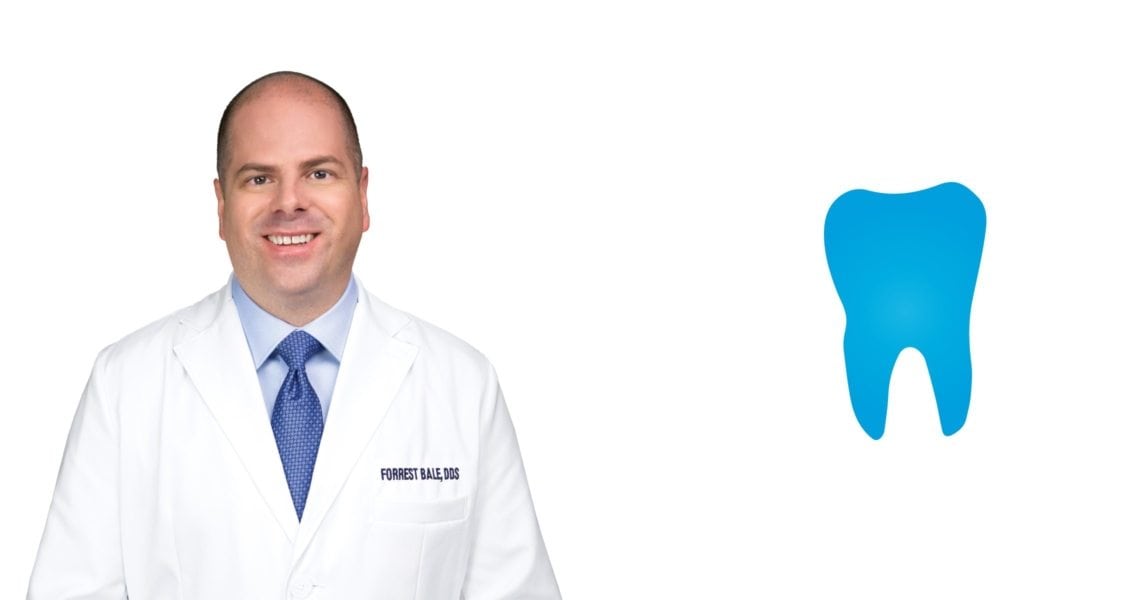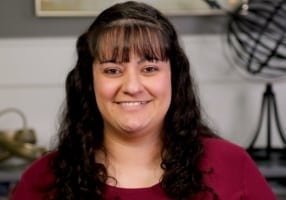Third molars, or wisdom teeth, usually emerge between the ages of 17 and 25. These are the final molars to grow in. Early monitoring of developing wisdom teeth is important when determining the best time for removal because it’s very common for these molars to cause problems even before symptoms arise. For many people, there isn’t enough room in the mouth for these four extra teeth, and without enough space, wisdom teeth can cause damage to adjacent molars or become impacted (trapped beneath the gums). In fact, wisdom teeth are the most likely teeth to become impacted. To avoid the potential oral health problems that impaction can cause, such as infection, crowding, pain, cysts, and more, most dental professionals recommend early removal of the wisdom teeth.
Your dentist can monitor you or your child’s wisdom teeth development with regular checkups. When wisdom teeth removal is recommended, you will be referred to an experienced oral surgeon like Dr. Bale.
When you come in for your initial appointment at Lakeside Oral, Facial and Dental Implant Surgery, Dr. Bale will complete a thorough oral examination, review any X-rays and 3D scans, and take more imaging to ensure the best treatment plan possible. Anesthesia options are also discussed at this time. Oral surgeons such as Dr. Bale are trained in the safe administration of anesthesia and will discuss your options with you.
In our practice in Russellville, AR, we offer several types of anesthesia, including
- Local anesthesia. An anesthetic applied directly to the surgical site, which allows the patient to remain conscious. Local anesthesia is used in virtually all oral surgery procedures, sometimes in conjunction with other forms of anesthesia.
- Nitrous oxide (also known as laughing gas). Nitrous oxide is often used along with other types of anesthesia to help the patient feel relaxed during longer procedures. This inhaled gas has a calming and pain-controlling effect while remaining conscious.
- IV sedation. Intravenous (IV) sedation is the most common anesthesia for wisdom teeth removal. The patient enters a sleep-like state and is unaware of the procedure taking place. You will need a designated driver to take you home after your procedure if you receive IV sedation.
After reviewing your anesthesia options with you, Dr. Bale will select the anesthesia that is best suited to your procedure and personal preference. We encourage you to review our Anesthesia Options page for more information.
After the anesthesia has been administered and you are comfortable, the procedure will begin. If the wisdom teeth have completely erupted from the gums, they can be extracted just like a regular tooth. Wisdom teeth that are trapped beneath the gums require a more involved procedure. Sometimes, an oral surgeon will extract the tooth in segments for an easier removal.
Once the wisdom tooth or teeth have been extracted, your oral surgeon will stitch up the surgical sites, and you will rest comfortably while your anesthesia wears off.
Wisdom Teeth Removal in Russellville, AR
If you’re looking for an expert to remove your or your child’s wisdom teeth in the Russellville, AR, area, contact Lakeside Oral, Facial and Dental Implant Surgery today. Dr. Bale and his staff look forward to serving you.




